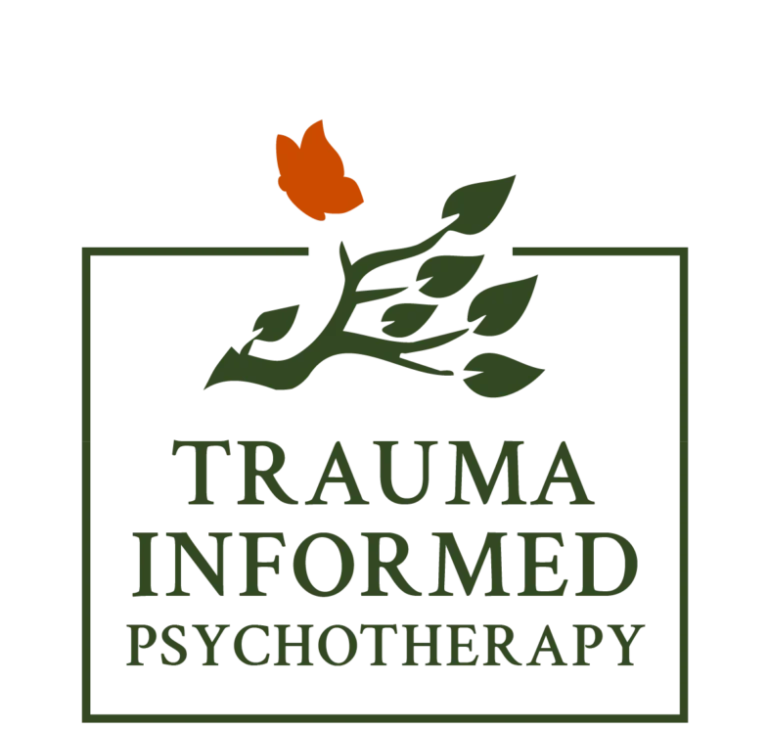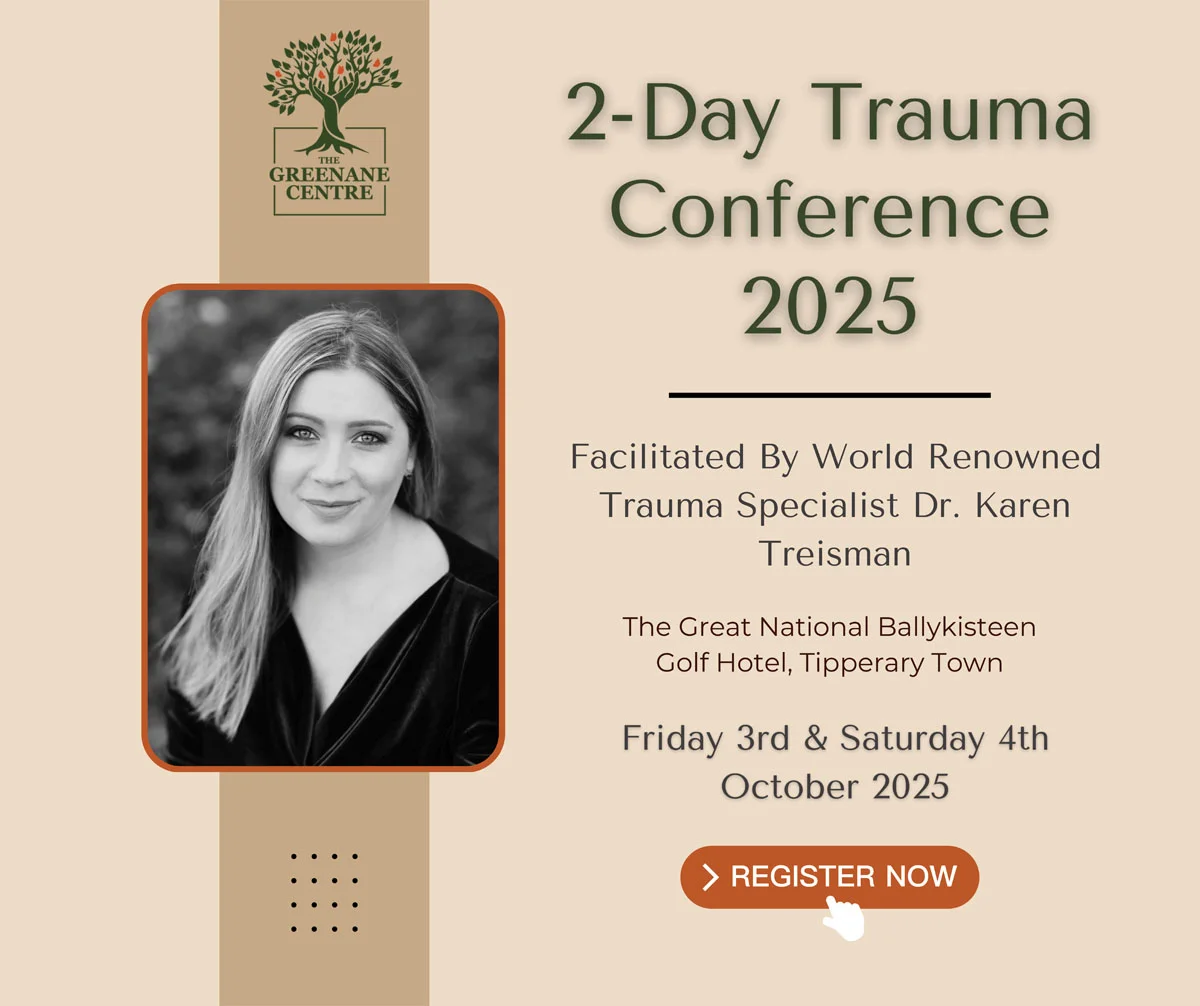AUGUST 2025 • NOW ENROLLING
Advanced Diploma in Trauma Informed Psychotherapy
Delivered Online via Zoom


Overview
Delivered Online via Zoom
The importance of understanding, appreciating and evaluating the impact of trauma has substantial implications for therapeutic needs assessment, case-conceptualisation, treatment planning and therapeutic outcomes. In order to ensure safe, ethical and informed therapeutic interventions, therapists must have and embody a deep appreciation and understanding of the neurobiology and physiology of trauma in order to prevent inadvertently re-traumatising clients.
Our Advanced Diploma In Trauma Informed Psychotherapy offers participants advanced practical skills-based training with a strong theoretical foundation based on the latest neuroscientific developments in working with trauma safely and effectively in an integrative manner. Embodying a Therapeutic Teaching Framework, participants will develop, appreciate and expand their knowledge and understanding of trauma through a neurobiological and physiology lens. In addition, participants will gain a deep appreciation of the nuances of Trauma Informed Psychotherapy while also developing a range of empirically validated skills and techniques to confidently and effectively work with trauma in a safe, integrative and systematic manner.
CPD Recognised and Approved by The Irish Association of Counselling & Psychotherapy and awarded 110 CPD Points.
Learning Outcomes
Participants who complete this 19 day CPD Diploma will gain a sound understanding of advanced trauma informed psychotherapy and will develop the tools and skills necessary to confidently and effectively work with trauma in a safe, strategic and systematic manner
Students Will:
- Develop a deep understanding and appreciation of the types, prevalence, neurobiologicaland physiological impact of Trauma.
- Use a Trauma-Informed lens to reframe challenging emotions and behaviours as adaptive responses to trauma, moving from a what’s wrong with you mindset to a what happen to you framework.
- Integrate Trauma focused theory, research and techniques coherently and safely in therapy facilitating clients post traumatic growth.
- Develop an understanding and appreciation of Trauma Expressed Communications through an Internal Family Systems Lens.
- Become proficient in using somatic interventions for tracking, naming, and safely exploring trauma-related somatic activation, creating new competencies and restoring clients somatic sense of self in a safe and trauma informed manner.
- Develop an understanding and appreciation of the use of imagery and creativity in processing trauma.
Programme Modules & Timetable
August 2025 to July 2026
CLICK ON THE + SIGN FOLLOWING THE MODULE NAME TO VIEW THE FULL DETAILS
Course Orientation
Thursday 28th August 2025.
7:30pm – 9:30pm. Zoom
Introduction to Course Philosophy, Principals, and Assessments
Facilitator: Liz Quish
Trauma Informed Care
Saturday 30th August 2025.
10am – 5pm. Zoom
- Trauma Informed – Care The Paradigm Shift
- Key Tenants of Trauma Informed Care
- Adverse Childhood Experiences
- Creating Trauma Informed and Resilience Building Practices
Facilitator: Marian Connell
Trauma Expressed Behaviors
Sunday 31st August 2025.
10am – 5pm. Zoom
- Adult Manifestation of Childhood Trauma
- Trauma Symptomatology
- Trauma Expressed Behaviours
- Shame, Fear and Trauma
- Intergenerational Transmission of Trauma
Facilitator: Marian Connell
Trauma & The Body
Thursday 25th September 2025,
Monday 29th September 2025.10am – 5pm. Zoom
- Introduction To Trauma
- Trauma Types
- Symptoms Of Trauma
- Triune Model Of Trauma
- Brain and Body Connection
- Introduction to PTSD
- Introduction to Polyvagal Theory
- Talk Therapy
Facilitator: Patricia Allen-Garrett
Polyvagal Theory
Saturday 25th October 2025.
10am – 5pm. Zoom
- Overview of Polyvagal Theory
- The Vagus Nerve and the Autonomic Nervous System
- Impact of Trauma on the Autonomic System
- Survival States – Physical and Psychological symptoms
- Self-regulation, co-regulation and vagal toning
- Embodied safety through a polyvagal lens
Facilitator: Marian Connell
Attachment
Saturday 15th November 2025,
Sunday 16th November 2025,
Saturday 6th December 2025.10am – 5pm. Zoom
- Overview of Attachment Theories
- Attachment as a Relational Construct
- Attachment Styles
- Process and Patterns in Relationships
- Pathways to Earned Secure Attachment
Facilitator: Marian Connell
Trauma Treatment Phases
Saturday 10th January 2026,
Monday 12th January 2026.10am – 5pm. Zoom
- Trauma Treatment Theories
- Trauma Treatment Phases
- Window of Tolerance
- Assessment and Evaluation
- Regulation Exercises
- Integration Phase Exercises
Facilitator: Patricia Allen-Garrett
Tutorial
Tuesday 27th January 2026 (Group 1),
Wednesday 28th January 2026 (Group 2).7:30pm – 9:30pm. Zoom
Participants are expected to attend an online tutorial and will be assigned to either Group 1 or Group 2 after Orientation.
Facilitator: Liz Quish, Programme Director
Trauma & Dissociative Responses
Monday 9th February 2026.
10am – 5pm on Zoom.
- Dissociation – Causes, Triggers and Contributing Factors
- The Continuum of Dissociative Experiences – Depersonalisation, De-realisation & Dissociative Identity Disorder
- Recognising Dissociation – Signs and Symptoms
- Introduction to Structural Dissociation
- The Importance of Compassion when Working with Dissociation
Facilitator: Patricia Allen-Garrett.
Trauma Through an IFS Lens
Saturday 7th March 2026,
Sunday 8th March 2026.10am – 5pm on Zoom.
- History and Development of IFS
- Theoretical Lense: Multiplicity of The Mind
- Parts & Extreme Roles Parts Take
- Qualities of Self 8 C’s and 5 P’s
- Process of Unblending from Parts
- Differentiation – Self Leadership and Parts
Facilitator: Kati Simpson
Somatic Internal Family Systems
Saturday 11th April 2026,
Sunday 12th April 2026.10am – 5pm on Zoom.
- The Healing Steps of IFS
- Reparenting and Retrieving the Exile
- Unburdening the Exile
- Somatic IFS – Working with the Body through an IFS Lens
- Creating Safety for Somatically Focused Work
- Legacy and Cultural Burden
Facilitator: Kati Simpson
Trauma Expression through Creative Interventions
Saturday 9th May 2026,
Sunday 10th May 2026,
Saturday 30th May 2026.10am – 5pm. Zoom
- Integrating Creative Interventions in Trauma Work
- Framework for Working Safely with Trauma through Creativity
- Introducing Art Based interventions to Clients
- Processing Trauma through Creativity
- Facilitating Post-Traumatic Growth through Creativity
Facilitator: Marian Connell
Vicarious Trauma & Compassion Fatigue
Thursday 25th June 2026.
10am – 5pm. Zoom
- Vicarious Trauma and Compassion Fatigue
- Exploring the Therapist Triggers
- Addressing Vicarious Trauma and Compassion Fatigue – Self Care
Facilitator: Patricia Allen Garrett
Programme Closing
Tuesday 30th June 2026.
7:30pm – 9:30pm. Zoom
Facilitator: Liz Quish
Programme Fee & Registration
Full Fee: €2,250
€500 on registration
€350 monthly for 5 months
Entry Requirement
This CPD Diploma is open to practitioners who have successfully completed a Degree or Diploma in Counselling/ Psychotherapy. It may also be of interest to Play Therapists, Art Therapists, Drama and Music Therapists who have appropriate experience and accreditation and are seeking to expand their skill set to work in an informed manner with Trauma.
Teaching Method
This programme will be facilitated entirely online on Zoom
Assessment
- Reflective Learning Journals (2 x 2000 words each)
- Book Review (1500 words)
Terms & Conditions:
Please read our Terms and Conditions document carefully. You will be required to indicate your consent on the programme application form.
Testimonials
Previous Participant Feedback
“I thoroughly enjoyed this course. I learned so much from the lecturers, their presentations, the material shared, the experiential learning and also from the group. I have attended several courses, CPD etc. and whilst I have always learned something new, I have always left feeling disappointed. Not this time! I have gained awareness, knowledge and skills on this course, all of which will benefit me personally and professionally. I have gained confidence in my practice and feel motivated and inspired by this training. I am very grateful for this experience and will be recommending this course. Thank you!”
– Emma L. | Psychotherapist
“Having a clear framework to guide my work with clients who present with trauma has given me such confidence. I now feel I can work in a safe and relational manner without the fear of re-traumatising.”
– Catherine O’N | IACP Accredited Psychotherapist
“A fantastic programme. Will definitely be recommending. Content so relevant to my work as a counsellor. Polyvagal Theory now makes sense!”
– Donna G. | IACP Accredited Psychotherapist
“This programme has been amazing from start to finish. I have learned so much from this training and now feel fully equipped to support clients who present with trauma histories.”
– Mary C. | Psychotherapist
Have Additional Questions?
Please do not hesitate to contact us should you have any queries. We will be more than happy to answer any of your questions.



